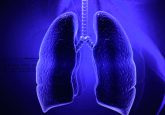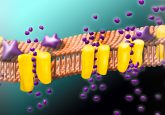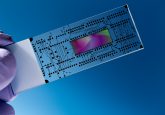Tracking arrhythmogenic cardiomyopathy: new biomarker identified

Researchers have identified a metabolic biomarker that could be used to track the progression of arrhythmogenic cardiomyopathy (AC). AC is a genetic heart muscle disease that can cause life-threatening ventricular arrhythmias. There are currently no clinical assessments for AC, and with patients remaining clinically healthy for up to 40 years, sudden cardiac death can be the first symptom of the disease.
In the study, published in Science Translational Medicine, researchers sought to build on prior work that identified metabolic abnormalities in the cardiac muscle of AC patients. The study found that high levels of ketone bodies in the plasma of AC patients could be used as an indicator of AC progression.
When evaluating the heart tissue from 13 AC patients and 13 healthy donors, the team observed increased expression of enzymes involved with ketone metabolism. In a comparison of plasma samples from AC patients, healthy volunteers and patients with other cardiopulmonary diseases, scientists found elevated levels of plasma ketones, specifically β-hydroxybutyrate, in samples from individuals affected by AC.
The paper reports that additional investigation using a mouse model of AC as well as cardiomyocytes derived from the stem cells of AC patients allowed the researchers to identify a network of deregulated ketone-producing metabolic pathways. These pathways could be a characteristic trait of AC.
In a final validation step – involving 65 AC patients, 94 of their relatives and 62 healthy volunteers – the team found that among the 94 relatives of those affected by AC, elevated levels of plasma β-hydroxybutyrate distinguished 25 relatives with suspected AC from those not affected.
Lead investigator, Jiang-Ping Song (Chinese Academy of Medical Sciences and Peking Union Medical College, Beijing, China) and colleagues concluded that the findings of their study indicate that plasma β-hydroxybutyrate could be a reliable metabolic biomarker to predict disease progression in patients with AC as well as a useful marker to identify their clinically asymptomatic relatives.
Source: Song JP, Chen L, Chen X et al. Elevated plasma β-hydroxybutyrate predicts adverse outcomes and disease progression in patients with arrhythmogenic cardiomyopathy. Sci Transl Med doi:10.1126/scitranslmed.aay8329 (2020)(Epub ahead of print); https://www.eurekalert.org/emb_releases/2020-02/aaft-tas021120.php






